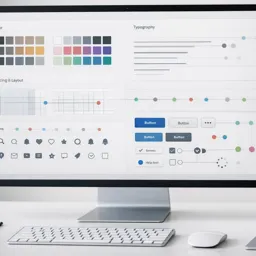User Experience (UX) design is a multifaceted field that focuses on creating products and services that provide meaningful and relevant experiences to users. Within UX design, there are specialized courses that delve into different aspects such as usability testing, interaction design, and information architecture. This article explores these specialized UX courses, their unique features, and the career opportunities they offer.
Usability Testing
Usability testing involves evaluating a product by testing it with representative users. This specialization focuses on assessing how easy and efficient a product is to use, identifying any usability issues, and making recommendations for improvement.
Key Features:
- User Research Methods: Courses cover various user research techniques, including surveys, interviews, and usability tests.
- Test Planning and Execution: Instruction on how to design, conduct, and analyze usability tests to gather meaningful insights.
- Reporting and Recommendations: Emphasis on creating detailed usability reports and providing actionable recommendations for design improvements.
Career Opportunities:
- Usability Analyst: Conducting usability tests and research to inform product design and development.
- UX Researcher: Focusing on understanding user behaviors, needs, and motivations through various research methods.
- Product Designer: Using usability insights to create user-centered designs that improve the overall user experience.
Interaction Design
Interaction design focuses on the design of interactive digital products and services. This specialization emphasizes creating engaging interfaces that facilitate user interactions with technology.
Key Features:
- Design Principles and Patterns: Courses cover fundamental design principles, patterns, and best practices for creating intuitive interfaces.
- Prototyping and Wireframing: Instruction on creating interactive prototypes and wireframes to visualize and test design ideas.
- User Flows and Scenarios: Emphasis on mapping out user flows and scenarios to ensure seamless interactions.
Career Opportunities:
- Interaction Designer: Designing interactive elements and user interfaces for digital products.
- UI/UX Designer: Combining user interface design with user experience principles to create cohesive and user-friendly products.
- Product Designer: Focusing on the overall design and user experience of a product, from concept to final implementation.
Information Architecture
Information architecture (IA) involves organizing and structuring content in a way that makes it easy to find and understand. This specialization focuses on creating clear and intuitive navigation systems for digital products.
Key Features:
- Content Organization: Courses cover methods for organizing and categorizing content to improve findability and usability.
- Navigation Design: Instruction on designing effective navigation systems, including menus, labels, and search functionality.
- User Research and Testing: Emphasis on conducting user research and testing to validate information architecture decisions.
Career Opportunities:
- Information Architect: Designing and organizing content structures for websites, applications, and other digital products.
- Content Strategist: Developing strategies for content creation, organization, and management to enhance user experiences.
- UX Designer: Incorporating information architecture principles into overall UX design to create intuitive and user-friendly products.
Conclusion
Specialized UX courses in usability testing, interaction design, and information architecture offer diverse career opportunities for those passionate about improving user experiences. Each specialization provides unique skills and knowledge, catering to different aspects of UX design. Whether you aspire to evaluate product usability, design engaging interactions, or organize content effectively, these specialized courses can help you achieve your professional goals and make a significant impact in the field of UX design.
































